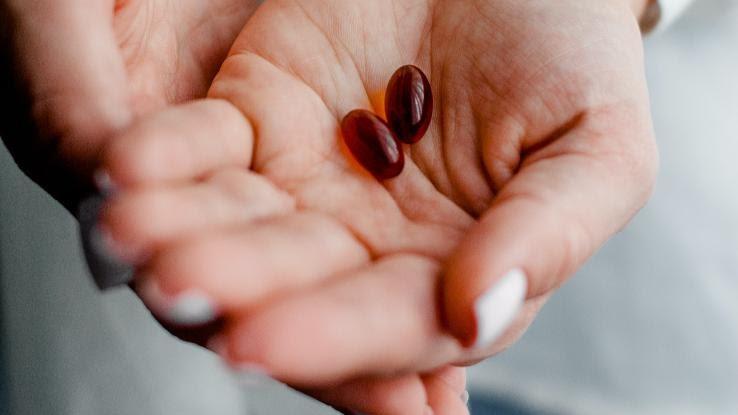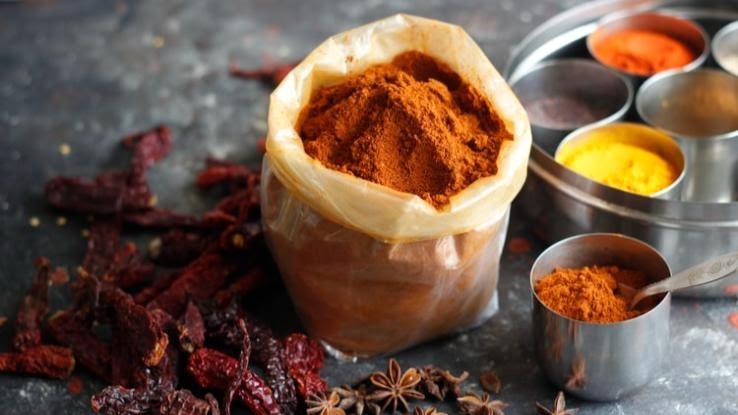
If you or someone you love has been recently diagnosed with psoriatic arthritis (or PsA), then you may have questions about available treatment options. Although there is no cure for PsA, there are plenty of therapeutic options that can help reduce common symptoms, such as swelling, stiffness, and joint pain. From medical treatments such as NSAIDs (or nonsteroidal anti-inflammatory drugs) and biologics to natural remedies and lifestyle changes, we’ll explore some of the common forms of PsA treatment.
Remember: You should always consult your doctor before pursuing treatment.
Medications Used to Manage Psoriatic Arthritis
NSAIDs

NSAIDs are among the most common traditional therapies for managing the pain and discomfort associated with PsA. Not only can NSAIDs reduce musculoskeletal symptoms, but they can also be used to control swelling; lessen pain and morning stiffness, and improve the range of motion in affected joints.
In milder cases, this might be the only medication needed to manage symptoms. Examples of over-the-counter NSAIDs include ibuprofen (Advil, Motrin IB) and naproxen (Aleve). Additionally, stronger NSAIDs are available on a prescription-only basis.
Steroids
Corticosteroids can also help to reduce swelling and pain associated with PsA. If one joint is particularly affected, you may receive an injection of a steroid directly into the joint. Steroids can also be taken in tablet form, to reduce inflammation and help with swelling and pain. However, taking steroid tablets in the long term is not recommended because they can have significant side effects.
DMARDs
Another common form of psoriatic arthritis treatment is a class of drugs called DMARDs, or disease-modifying anti-rheumatic drugs. DMARDs work by addressing the underlying cause of psoriatic arthritis, which is an abnormal immune response in the body. This response causes the body’s immune system to attack various tissues and cells, including the joint tissues, even though they are healthy. DMARDs block the chemicals that cause this inflammation and, therefore, improve symptoms; slow the progression of PsA, and help prevent further joint damage.
DMARDs are usually taken orally, in the form of a pill. Examples of DMARDs include methotrexate (Trexall, Otrexup), leflunomide (Arava), sulfasalazine (Azulfidine), azathioprine (Imuran, Azasan) and cyclosporine (Gengraf, Neoral, Sandimmune).
It can take several weeks before you see whether or not a DMARD is working, so it is important to keep taking this medication even if the results are not immediate. DMARDs can affect the entire immune system and may have side effects, such as bone marrow suppression, liver damage and increased risk of infection.
Other Medications
Phosphodiesterase-4 (PDE4) inhibitors such as apremilast (Otezla) have recently been approved for patients with psoriatic arthritis who have not had a good response to a prior DMARD. This drug is taken in tablet form and functions to decrease the activity of one of the enzymes in the body that causes inflammation.
Biologics
Biologics are a relatively new type of treatment for psoriatic arthritis. Biologics target specific molecules or chemicals in the immune system that are responsible for causing psoriatic arthritis. These drugs are usually reserved for those with severe psoriatic arthritis or for those in whom other treatments have been ineffective.
Biologics are usually injected or infused into a vein by a drip and can be used alone or in combination with other medications (such as older DMARDs). Examples of biologics include adalimumab (Humira), abatacept (Orencia), infliximab (Remicade), apremilast (Otezla), certolizumab (Cimzia), etanercept (Enbrel), tofacitinib (Xeljanz), golimumab (Simponi), ixekizumab (Taltz), secukinumab (Cosentyx), and ustekinumab (Stelara).
Biologics can cause side effects, including liver and kidney problems, so you may require regular blood or urine tests to monitor this possibility. Biologics can also increase your susceptibility to infection. Biologics do not work right away, and it is normally recommended that you continue treatment for at least three months before assessing whether the drug is effective.
Non-Pharmacological Therapies
The symptoms of psoriatic arthritis can be made more manageable by maintaining a healthy lifestyle.

Lifestyle Changes to Consider
- Weight: Maintaining a healthy weight reduces the load on your joints. If you are overweight, losing weight may help reduce symptoms of joint pain.
- Exercise: Regular gentle exercise can help to keep the joints flexible, and keep the muscles strong, which in turn supports the joints. Additionally, exercise has also been shown to reduce overall inflammation, increase energy levels, and improve mood.
- Diet: Keeping a healthy and balanced diet ensures your body has the right nutrients and vitamins to support joint health. In particular, having a diet low in processed and fatty foods has been shown to improve most health conditions.
- Smoking: This activity is known to have a pro-inflammatory effect on the body. Additionally, those who smoke have a higher risk of developing psoriatic arthritis and are more likely to experience severe symptoms. Smoking can also reduce the effectiveness of some of the medications used to treat psoriatic arthritis.
- Alcohol: Alcohol can increase the risk of developing psoriatic arthritis, and can make your symptoms worse. In addition, some medications should not be taken alongside alcohol.
- Physiotherapy: Physiotherapy may be useful in some people with psoriatic arthritis to maintain joint flexibility and build strength.
- Home Aids: Use of home aids, such as jar openers, can help to maintain independence while reducing strain on the joints.
- Stress Management: High levels of psychological stress can have a detrimental effect on physical diseases. It may be helpful to engage in stress reduction activities such as yoga, meditation and mindfulness.
Surgery
For those with severe psoriatic arthritis, surgery may be suggested by a medical professional. This is usually the course of treatment when a damaged joint needs to be removed and replaced with a prosthetic one.
Alternative Therapies
There is limited clinical evidence regarding the effectiveness of the following therapies on PsA symptoms. On the other hand, they do not cause harm, and, in some instances, can improve your overall well-being. These alternative therapies and remedies include:
- Turmeric: Curcumin, a naturally occurring ingredient in turmeric, is thought to exhibit anti-inflammatory properties.
- Epsom Salt and Spa Therapy: Use of thermal baths and Epsom salts have been used since ancient times to treat rheumatological diseases. These may have a dual effect of both loosening joint stiffness and combating psychological stress.
- Massage: Massage may be useful in loosening the tight muscles that might accompany joint pain. Massages may also improve blood flow. However, it is not recommended to massage areas that are in pain.
Resource Links:
- “Psoriatic Arthritis” via MedlinePlus
- “Treatments for Psoriatic Disease” via The National Psoriasis Foundation
- “Psoriatic Arthritis” via National Institute of Arthritis, Musculoskeletal, and Skin Diseases
- “Psoriatic Arthritis” via National Health Service
- “Psoriatic Arthritis: Diagnosis and Treatment” via Mayo Clinic
- “Psoriatic Arthritis” via BMJ Best Practice
- Gossec et al. (2019). EULAR recommendations for the management of psoriatic arthritis with pharmacological therapies: 2019 update.





